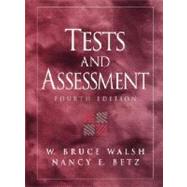
| Preface | vii | ||||
| PART I FOUNDATIONS OF TESTS AND ASSESSMENT | |||||
|
1 | (19) | |||
|
5 | (3) | |||
|
8 | (1) | |||
|
9 | (2) | |||
|
11 | (1) | |||
|
12 | (1) | |||
|
13 | (1) | |||
|
14 | (1) | |||
|
15 | (2) | |||
|
17 | (2) | |||
|
19 | (1) | |||
|
20 | (26) | |||
|
20 | (3) | |||
|
23 | (15) | |||
|
38 | (6) | |||
|
44 | (2) | |||
|
46 | (39) | |||
|
47 | (9) | |||
|
56 | (15) | |||
|
71 | (12) | |||
|
83 | (1) | |||
|
84 | (1) | |||
| PART II THE ASSESSMENT OF PERSONALITY | |||||
|
85 | (39) | |||
|
85 | (2) | |||
|
87 | (1) | |||
|
88 | (34) | |||
|
122 | (2) | |||
|
124 | (21) | |||
|
124 | (1) | |||
|
125 | (13) | |||
|
138 | (6) | |||
|
144 | (1) | |||
| PART III THE ASSESSMENT OF COGNITIVE ABILITY | |||||
|
145 | (39) | |||
|
145 | (15) | |||
|
160 | (23) | |||
|
183 | (1) | |||
|
184 | (28) | |||
|
185 | (9) | |||
|
194 | (16) | |||
|
210 | (2) | |||
|
212 | (21) | |||
|
213 | (2) | |||
|
215 | (5) | |||
|
220 | (5) | |||
|
225 | (7) | |||
|
232 | (1) | |||
| PART IV THE ASSESSMENT OF INTERESTS AND CAREER DEVELOPMENT | |||||
|
233 | (41) | |||
|
235 | (1) | |||
|
236 | (37) | |||
|
273 | (1) | |||
|
274 | (36) | |||
|
275 | (7) | |||
|
282 | (12) | |||
|
294 | (3) | |||
|
297 | (7) | |||
|
304 | (5) | |||
|
309 | (1) | |||
| PART V THE ASSESSMENT OF ENVIRONMENT, PERSON-ENVIRONMENT INTERACTION, AND HUMAN DEVELOPMENT | |||||
|
310 | (42) | |||
|
311 | (2) | |||
|
313 | (1) | |||
|
314 | (36) | |||
|
350 | (2) | |||
|
352 | (25) | |||
|
354 | (1) | |||
|
355 | (11) | |||
|
366 | (5) | |||
|
371 | (5) | |||
|
376 | (1) | |||
|
377 | (21) | |||
|
378 | (12) | |||
|
390 | (7) | |||
|
397 | (1) | |||
| PART VI ETHICAL STANDARDS OF TESTS AND ASSESSMENT | |||||
|
398 | (33) | |||
|
399 | (8) | |||
|
407 | (18) | |||
|
425 | (5) | |||
|
430 | (1) | |||
| References | 431 | (34) | |||
| Name Index | 465 | (10) | |||
| Subject Index | 475 |
The New copy of this book will include any supplemental materials advertised. Please check the title of the book to determine if it should include any access cards, study guides, lab manuals, CDs, etc.
The Used, Rental and eBook copies of this book are not guaranteed to include any supplemental materials. Typically, only the book itself is included. This is true even if the title states it includes any access cards, study guides, lab manuals, CDs, etc.